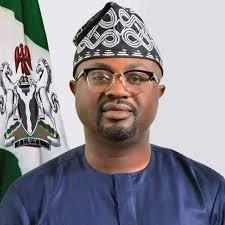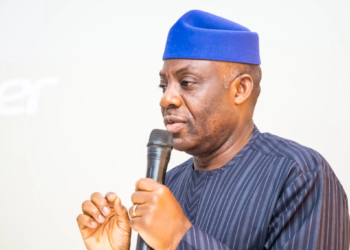Nigeria’s Minister of Interior, Olubunmi Tunji-Ojo, has raised concerns over the porous state of the country’s borders, warning that it has enabled foreign nationals to infiltrate the country, engage in kidnapping for ransom, and channel the proceeds to fund terrorist operations in neighboring countries.
Tunji-Ojo made this known on Monday during a Constitution Review Legislative Dialogue on National Security, organised by the House of Representatives Committee on Constitution Review.
Drawing parallels with the United States prior to the 9/11 terrorist attacks, the minister said Nigeria currently finds itself in a similarly precarious position—armed with information, but lacking the capacity or political will to act effectively on it.
“Nigeria is at a point now that the US was before the 9/11 attack,” he said. “After the attack, the US sat down. They looked at the emerging threat.”
The minister stressed that the lack of adequate border governance has created a loophole for foreign criminals to enter the country unchecked.
“When you look at the 2025 budget, how much do you set aside for border security? The capital budget for the Nigeria Immigration Service is less than ₦10 billion, and you want to protect over 4,024 square kilometers of our border space. Are we joking?” he asked.
He further criticized Nigeria’s geographical vulnerabilities, pointing out that the country is caught between the Sahel region and the Gulf of Guinea, two zones plagued by instability and cross-border threats.
“Nigeria, we are two geographical areas, and we are part of the Sahel. And you know what happens within the Sahel. On the other side is the Gulf of Guinea. We are in between, on the maritime side, from the Sahel, and anything that happens in all these countries, the endpoint is Nigeria,” he explained.
Tunji-Ojo also called for a structural review of Nigeria’s security architecture, including an overhaul of outdated agencies created during the military era that still consume large chunks of the national budget without delivering significant impact.
“When you look at some of these laws, it is like we set up agencies to fail,” he said. “We cannot continue funding the police solely through annual budgetary provisions and expect meaningful results. In terms of adequate funding, I do not see a reason why the police should even rely on budgetary allocation.”
The minister expressed dismay over the military’s increasing involvement in internal security operations, describing it as an indictment of civilian security agencies.
“When we talk about internal security, the first thing that comes to mind is the military. That is a sign of the failure of our internal security agencies. Let’s tell ourselves the truth,” he said.
Emphasising the need to improve cybersecurity and tackle terrorism financing, he said, “Most of what we have in Nigeria today is economic crime. Most of these people come to Nigeria to kidnap, raise funds to be able to fund insecurity in neighbouring countries.”
He added: “If we continue to pay lip service, we don’t look at the issues on the ground, we will just be joking. Again, in reviewing our laws, we can’t deal with insecurity and not talk of terrorism financing. We must look at the EFCC Act and strengthen it.”
Read also: FG, internet group partners to establish innovation hubs across Nigeria
Also speaking at the event, Chairman of the Economic and Financial Crimes Commission (EFCC), Ola Olukoyede, linked the rising insecurity to unchecked activities of some foreigners residing in Nigeria. He disclosed that the commission recently arrested 194 foreign nationals in a single operation at a building in Lagos for various crimes.
“Fifty of those arrested have already been convicted by the court and have started serving their sentence,” he said, adding that investigations revealed that 15 of those arrested were already ex-convicts from their home countries.
Olukoyede stressed the need to revise national laws to eliminate operational bottlenecks that hinder law enforcement agencies from prosecuting offenders effectively.
He said, “The porous borders of the country have opened the floodgate for dangerous people to come into the country at will.”
On her part, Comptroller General of the Nigeria Immigration Service (NIS), Kemi Nandap, lamented the absence of a constitutional framework for border security, describing it as a major setback for the service.
“The issue of border security was not captured in the Nigerian Constitution and is left without a distinctive framework,” she said. “Even though it is critical to national security, it is not captured in the annual budget.”
She revealed that Nigeria currently has about 1,400 illegal entry points, making it imperative for the government to develop a deliberate and comprehensive border management strategy.
“It is instructive to know that the security of your neighbour determines how secure you are,” she added.









